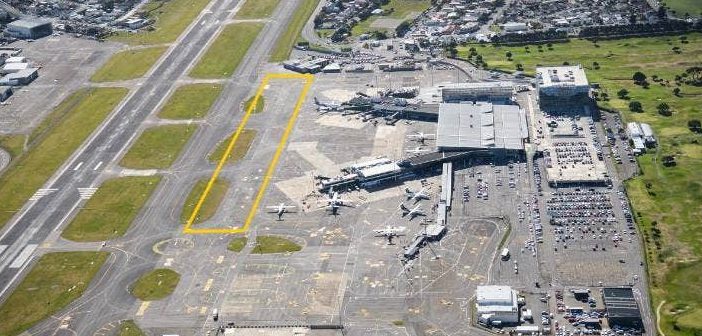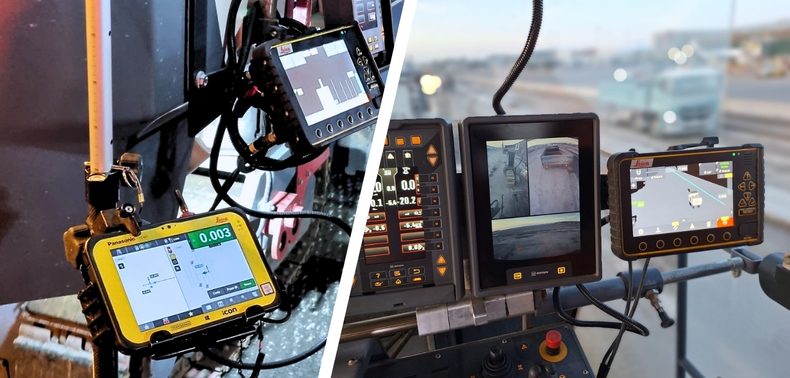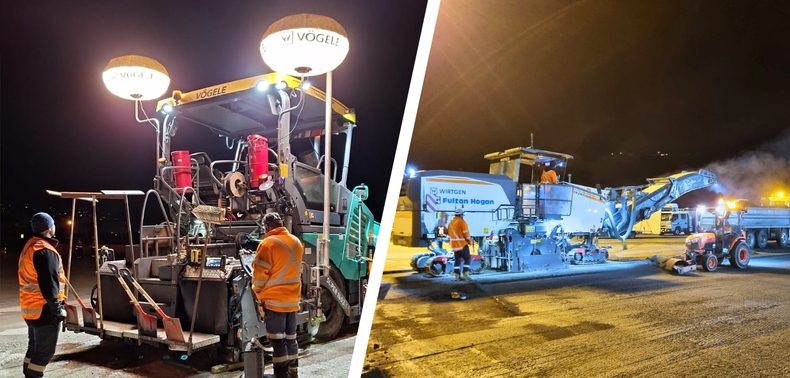
Wellington Airport’s apron taxiway was set to undergo major reconstruction for the first time since the airport opened in 1959. The apron taxiway consists of the paved area between the runway and the airport terminal. This area had reached the end of its design life and needed to be resurfaced to ensure the ongoing safety and efficiency of aircraft operations.

The Wellington Airport Taxi Bravo project was a significant undertaking with more than 25,000 sqm of pavement that required milling and resurfacing. New airfield ground lighting and stormwater infrastructure was installed as part of the project, which spanned 18 months.

The Fulton Hogan Wellington paving division chose to use the Leica iCON MC1 3D Paving and 3D Milling solution on this long running project, with technical support provided by Global Survey’s specialist team.
This involved installing the Leica machine control solution on their Wirtgen W210-fi milling machine and their Vogele 1800-3 paver. Leica iCON MC1 interfaces directly with all common brands of milling and paving machinery.
The main objective of using Leica machine control on this project was to mill to the required depth and ensure that the new surface was paved to the finished 3D design levels with high accuracy. The process involves milling to the required depth in one pass and subsequently paving in two passes, a bottom and top layer each of 75mm compacted asphalt.

Levels were checked during the paving process using a Leica iCON iCR80 2″ Robotic Total Station so that fine micro-adjustments could be made to meet the tolerances.
The Leica iCON MC1 3D Paving and 3D Milling solution enabled accurate control of the screed to pave, with variable depth and slope, based on the 3D design. The result was accurate product placement of the finished surface to tolerances of 0+3mm. This technology ensured that the exact amount of material was used and reduced waste and the need for rework, ultimately reducing costs.
With 2 crews running on a dayshift and a nightshift, efficiency on this project was paramount to ensure the project kept on schedule. To minimise disruption to both local residents and airline schedules, much of the asphalt paving was conducted by the nightshift crew delivering between 1,500-2,000 sqm per shift, depending on the complexity of the area.
Talk to the Global Survey team about precision construction technology – 0800 453 422 / info@globalsurvey.co.nz
SHARE THIS ARTICLE


